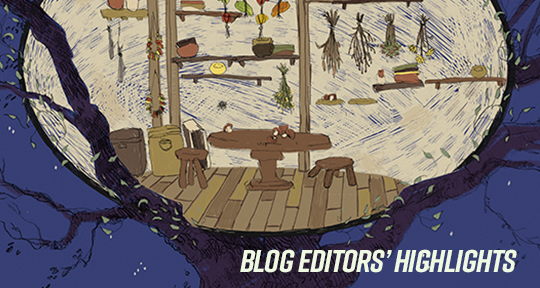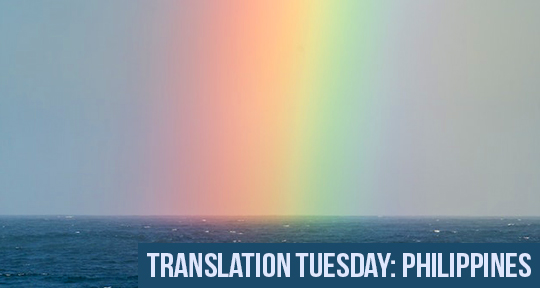In recent years, the work of Moroccan poet and writer Mohammed Khaïr-Eddine (1941–1995) has received increasing attention, both in Morocco and abroad. One of the cofounders of Souffles/Anfas, the influential journal of culture and politics established in 1966, Khaïr-Eddine played a major role in the renewal of Moroccan and North African literature. His practice of what he called “linguistic guerrilla warfare” is based on the distortion of French language and the use of unconventional and subversive imagery. Some major features of Khaïr-Eddine’s unruly prose and poetry are generic hybridity, acerbic political critique, anti-authoritarian spirit, and the celebration of his native Amazigh (or Berber) land and culture. Most of his works, published with Editions du Seuil in Paris in the 1960s and 1970s, have long been out of print.
The recent (and long-awaited) surge of interest in Khaïr-Eddine’s oeuvre is due in large part to the work of dedicated and passionate translators, including Conor Bracken and Jake Syersak. The former translated Khaïr-Eddine’s first poetry collection Scorpionic Sun (Cleveland State University Poetry Center, 2019). The latter co-translated with Pierre Joris Khaïr-Eddine’s masterpiece Agadir (Lavender Ink / Diálogos, 2020) and translated three of his other works: I, Caustic (Litmus Press, 2022), Resurrection of Wild Flowers (OOMPH! Press, 2022) and Proximal Morocco— (Ugly Duckling Presse, 2023). The following interview explores their relationship with Khaïr-Eddine’s work and illuminates the context, process, and challenges of their translations. It also addresses their most recent and future translation projects.
Khalid Lyamlahy (KL): What was your first exposure to Khaïr-Eddine’s work and why did you decide to translate it?
Conor Bracken (CB): I first encountered Khaïr-Eddine’s work in 2015, in Poems for the New Millenium IV: The University of California Book of North African Literature (2013). Pierre Joris recommended I look through it when I asked him where I might find francophone poetry to translate, and when I read the poems of Khaïr-Eddine’s in there, I felt an unmistakable urgency, a fierce need not just to get out whatever was inside the mind behind these poems but to communicate with someone. It was like I’d been grabbed and shaken. Up to that moment I hadn’t found that in francophone or French poetry, which felt stately or methodical or cerebral, but this struck me. Not like an idea flashing in the mind’s sky, but like I was a door that needed to be opened. I wanted to translate that sensation.
Jake Syersak (JS): I first discovered Khaïr-Eddine’s work through the few translations that Pierre Joris had included in the same volume. At the time, I was a PhD candidate in English and Creative Writing at the University of Georgia. It was 2016 and looking more and more likely that the extreme right was going to successfully worm its way into the United States presidency. It was distressing, to say the least. I remember sitting in the library there, thumbing through volumes of contemporary French poetry, searching for a translation project that I could make part of my exams. All of them seemed to me like such white noise in the current political climate. I wanted to find a meaningful project—one that might, in whatever meager way, contribute to the struggle against the rising tide of GOP-fueled populist xenophobia.
Khaïr-Eddine’s poems were exactly what I needed in that moment: laced with vitriol, unwilling to compromise, fiercely anti-authoritarian, and stretching the utopian limits of imagination. Everything clicked into place from there. I had spent the bulk of my academic career up to that point studying avant garde and experimental poetics, with an emphasis on Surrealism and its revolutionary potential. Khaïr-Eddine’s work opened me up to a whole new class of writers who saw that potential and applied it with all their strength.
KL: What was your level of familiarity with Moroccan/Maghrebi literature and politics before embarking on the translation? Did you use any resources to help you prepare the translation?
JS: Very close to zero. I think I had read some Abdellatif Laâbi here and there. And of course I knew of the Négritude poets, to whom Khaïr-Eddine and others of his ilk are indebted. Olivia C. Harrison and Teresa Villa-Ignacio’s Souffles-Anfas anthology (Stanford University Press, 2016) was essential to a speedy contextual education.
CB: My level of familiarity with the literature at that point was low, though I had some familiarity with the political and cultural history of Morocco and the Maghreb writ large—my family lived in Rabat for a few years, and I visited and traveled several times, so had some experience with Moroccan places, landscapes, people, and culture. While I worked on Khaïr-Eddine’s book Scorpionic Sun, I read up on him as much as possible. I also delved more deeply into “les années de plomb”/King Hassan II’s rule, and read a lot about Souffles/Anfas, the journal founded by Abdellatif Laâbi that, coupled with various political actions and protests, led to the exile of Khaïr-Eddine, Tahar Ben Jelloun, and others, as well as to Laâbi’s long imprisonment. An invaluable resource was the critical anthology, edited by Olivia C. Harrison and Teresa Villa-Ignacio, on Souffles/Anfas.
KL: Conor, what was the translation process of Khaïr-Eddine’s 1969 poetry collection Soleil arachnide like? Did you work on each poem separately and/or move back and forth between the poems?
CB: Though the poems in Soleil arachnide aren’t what anyone would call straightforward, the process of translating it generally was. First I transcribed it into a Word doc, in part to be able to ctrl-F my way through it, but also to get a feel for the poems themselves—how they moved on their own, how they gained power and definition when placed side by side. Once I finished that, I translated linearly, working until a poem felt like it was in a good place before moving to the next. I repeated this process five more times, going front to back each time, over three years. Doing it this way gave me clear boundaries about where to start and where to stop, though translating longer poems like “Le roi” (“The King”) or “Soleil arachnide” (“Scorpionic Sun”) was challenging. If we think of translating as a kind of reconstruction, dismantling a building to rebuild it on different land, then doing that for these poems was like rebuilding a whole town. But it was valuable, as a translator, to feel the poems’ relentlessness, the incredible ferocious vigor that erected them and somehow had them balancing in the precarious air through sheer force. READ MORE…










